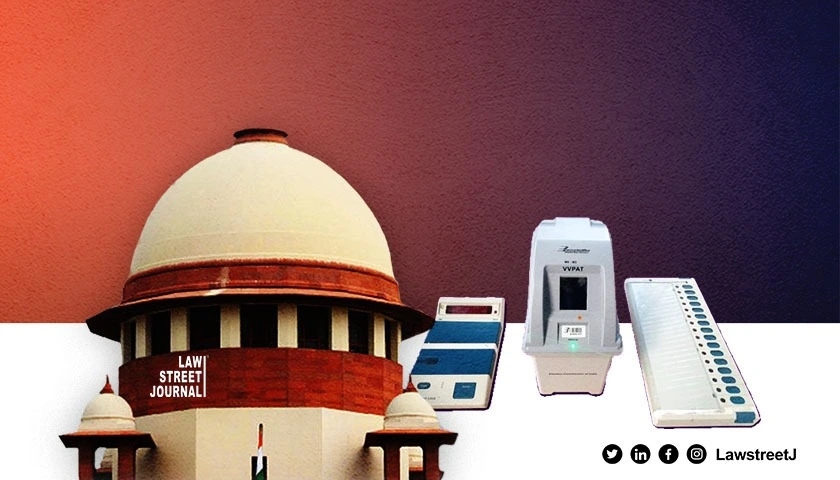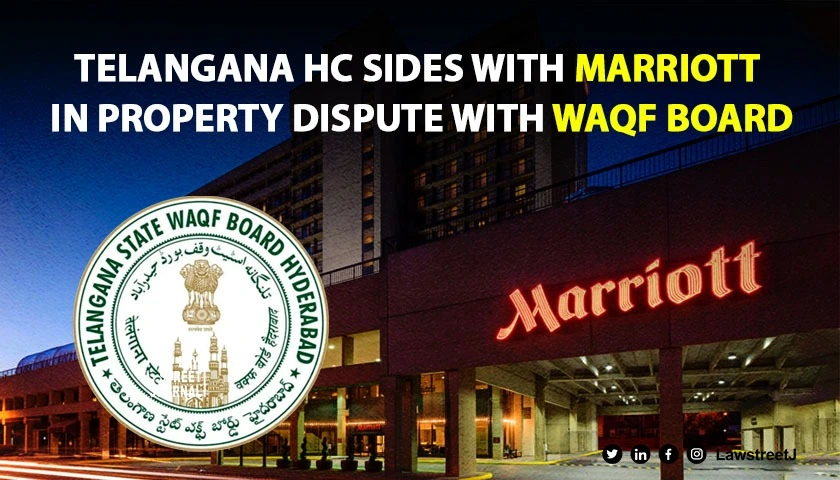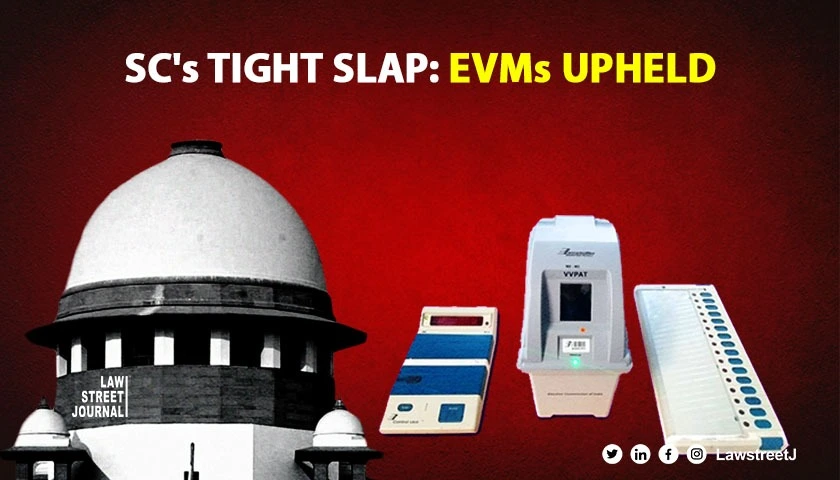NEW DELHI: The Model Code of Conduct (MCC) functions as a comprehensive framework that has been collectively endorsed and accepted by all parties involved in the electoral process.
The basic aim is to guarantee that electoral campaigns, polling processes, and counting activities are conducted in a systematic, transparent, and nonviolent manner. Moreover, it functions as a measure to mitigate any potential abuse of the state apparatus and financial assets by the governing political party.
Significantly, though the MCC lacks in terms of statutory account yet has been affirmed by the Supreme Court in numerous cases.
In the case of Union of India vs. Harbans Singh Jalal and Others, the apex court has ruled that the Model Code of Conduct will be made applicable once the ECI has issued a press release regarding the polling.
The Genesis of the Model Code of Conduct & its Parts
Political parties have played a crucial role in Indian democracy. However, they have also generated numerous issues by using religion, financial resources, and physical might to secure votes in elections.
One of the most prominent instances of electoral malpractices in India occurred in 1975 when the election of former Prime Minister of India Indira Gandhi, from the Indian National Congress (INC) party, from Rae Bareli was declared null and void as she was found guilty of utilizing government resources to acquire an unjust advantage in the election process.
Consequently, prior to the general election for the Lok Sabha in October 1979, the Election Commission released an extensive MCC that was structured into seven sections, with one section (Part VII) specifically addressing the responsibilities of the ruling party at both the national and state levels.
Part I pertains to the overarching principles of ethical conduct that are anticipated by candidates and political parties. Parts II and III are dedicated to the examination of public gatherings and parades.
Parts IV and V delineate the prescribed conduct that political parties and candidates ought to adhere to during the day of polling and within the confines of the polling booths.
The MCC has undergone multiple revisions since then. The most recent occurrence of this event took place in 2014, when the Commission implemented Part VIII about manifestos, following the directives issued by the Supreme Court.
Today when India is getting ready for the 18th Lok Sabha elections in 2024 and the Election Commission of India (ECI) has already announced the voting dates, the elections this time will be completed in 7 phases starting from the 19th of April 2024.
This means that the Model Code of Conduct (MCC) is now in effect and we may witness different political parties rushing and writing to the Election Commission of India alleging the violation of the MCC by their political opponents.
Guidelines
General Conduct
• No political party or candidate is permitted to engage in any actions that have the potential to exacerbate pre-existing disparities, foster animosity, or generate friction among diverse castes, communities, religious groups, or linguistic groups.
• It is imperative to refrain from engaging in criticism of other parties or their workers that is founded on unconfirmed charges or distortion.
• The utilization of caste or sectarian sentiments as a means to garner votes is strictly prohibited.
• All political parties and candidates are required to diligently refrain from engaging in any acts that are considered "corrupt practices" and offenses as defined by the election legislation.
• Every individual's right to a peaceful and uninterrupted home life will be upheld.
• A political party or candidate is prohibited from allowing their supporters to utilize an individual's land, building, compound wall, or any other property without obtaining the individual's consent for activities such as raising flag staffs, suspending banners, posting notices, or writing slogans.
• It is imperative for political parties and candidates to take measures to prevent their followers from causing disruptions in meetings and processions organized by other political parties.
Gatherings
• The party or candidate is required to provide prior notification to the local police authorities regarding the location and schedule of any intended gathering.
• The party or candidate is required to verify beforehand whether there are any restriction or prohibitory orders in effect at the intended meeting location. If such orders are present, they must be adhered to rigorously. If there is a need for an exemption from these orders, it must be requested and acquired promptly.
• It is necessary to acquire permission or a license for the facilities associated with any intended meeting.
• Meeting organizers must always request the aid of the police on duty to address anyone who disrupts a meeting or attempts to cause chaos.
Election Campaigns
Election campaigns encompass the strategic activities undertaken by candidates and political parties to formulate and articulate their ideas and stances on many matters to the electorate during the pre-election phase.
To accomplish this, a range of elements are employed, including trucks, flags, temporary office facilities, bulk SMS or voice messages, loudspeakers, and other similar tools.
Comprehensive guidelines in the MCC outline specific requirements for the utilization of these instruments.
Luring voters with false promises - Election Manifestos
Further, it has been seen that political parties promise hitherto anything that they think can be beneficial in luring voters, and in the same line, the Supreme Court in its judgment dated 5th July 2013 in SLP(C) No. 21455 of 2008 (S. Subramaniam Balaji Vs Govt. of Tamil Nadu and Others) has directed the Election Commission to frame guidelines concerning the contents of the election manifestos in consultation with all the recognized political parties.
Article 324 of the Constitution assigns the Election Commission the duty of overseeing all elections in India, including State Legislature and Parliamentary elections. Following the Supreme Court's directive and discussions with political parties, the Commission has published comprehensive rules aimed at maintaining the impartiality and integrity of the electoral process.
- Election manifestos must abide by the Model Code of Conduct and fundamental constitutional foundations. This makes sure that nothing in them goes against these guidelines.
- Parties should pledge to implement welfare initiatives in line with the Directive Principles of State Policy, but they should exercise caution when making pledges that can taint the fairness of elections or unduly sway voters.
- Transparency is also a major priority, with manifestos expected to outline finance strategies and provide a clear justification for pledges.
- Additionally, it is imperative that manifestos not be released during the times specified in Section 126 of the Representation of the People Act, 1951, to maintain equity. These rules are meant to preserve the legitimacy and integrity of the voting process while ensuring that all candidates and parties are treated fairly.
The first state to put into effect the Model Code of Conduct & MCC’s subsequent implementation
The Model Code of Conduct was first put into effect for the Kerala assembly election in 1960, further a general code of conduct was put into effect for general elections in 1962 by the Election Commission, and because the political parties consistently disregarded the Code of Conduct, the Election Commission in 1991 decided to strengthen its implementation.
The Election Commission's warnings are the standard procedure for addressing violations of the Model Code of Conduct. Nevertheless, if the violations are under the Indian Penal Code, 1860, and the Representation of the People Act, 1951, there are significant consequences, potentially resulting in imprisonment for the offender.
The MCC has emerged and developed through the consensus of political parties over time. Despite its significance in regulating electoral behavior, the MCC lacks statutory backing and thus cannot be enforced by law.
The recommendation to make the MCC legally binding was made by the Standing Committee on Personnel, Public Grievances, Law, and Justice in the year 2013.
It was stated by the committee that many of the provisions of the MCC are essentially equivalent to laws that are already in place, which makes them inherently enforceable.
In addition, they brought attention to the fact that there is no instant appeal procedure for judgments made by Returning Officers, which means that the choices can only be disputed after the results of the election have been revealed.
Election Commission’s opposition to making the MCC legally enforceable
On the other hand, the Election Commission has expressed opposition to the concept of legalizing the MCC, citing difficulties related to practicality.
- They contended that elections are normally completed in a very short period, typically within forty-five days, but legal proceedings typically take a lengthier amount of time.
- If the MCC were to be made legally enforceable, it may cause delays in resolving infractions, which would make it more difficult to resolve electoral issues on time.
- In addition, the Commission believed that the legal definition of MCC principles could lead to more litigation that is not necessary, which could potentially make the election process more complicated.
Conclusion
Even though there is no express legal enforcement of the MCC, there are measures that are already in place under the Representation of the People Act (RoPA) of 1951 that are complementary to the ideas of the MCC and help in the process of putting it into effect.
As an illustration, the provisions of the RoPA that pertain to disqualification upon conviction for specific offences are found in Section 8 of the RoPA, whereas Part VII contains rules that pertain to electoral offences and corrupt activities.
Even though they indirectly promote the objectives of the MCC, these legal measures offer a foundation for ensuring that elections are conducted in a free and fair manner to uphold the values and ethos of democracy.
Free and Fair elections are the foundation of a vibrant democracy and as the largest democracy in the world, India as a country holds, free and fair elections as sacrosanct to the democratic ethos enshrined in our Constitution and the political parties should also respect the code of conduct for the greater good to the country.
(Disclaimer: Opinions and views expressed are solely those of the author and do not necessarily reflect the views of LawStreet Journal.)
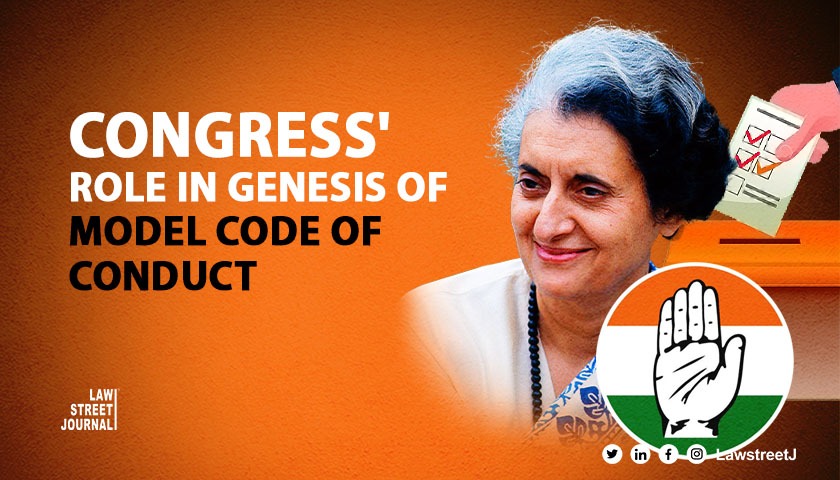
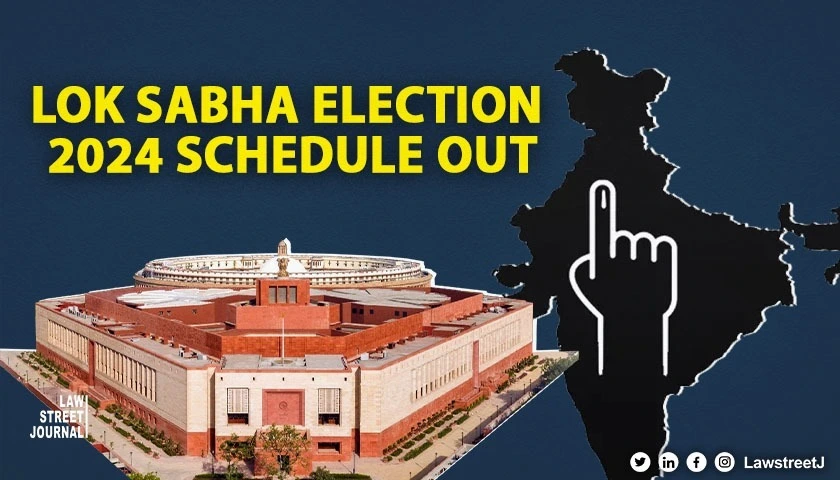
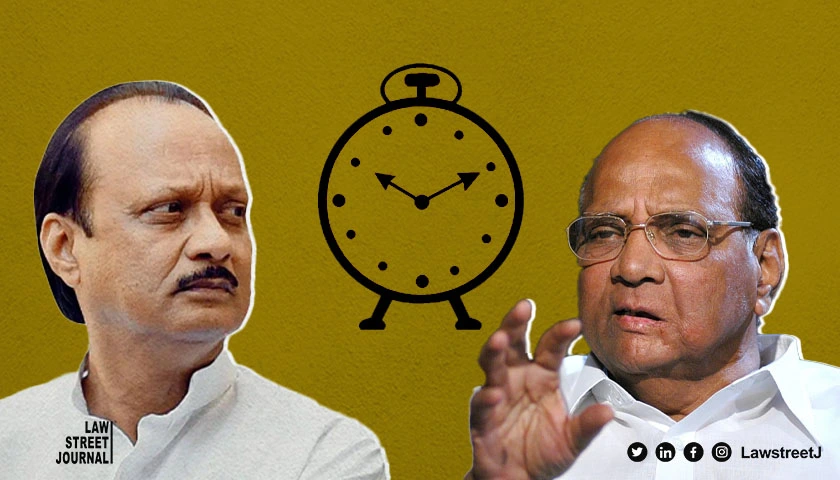
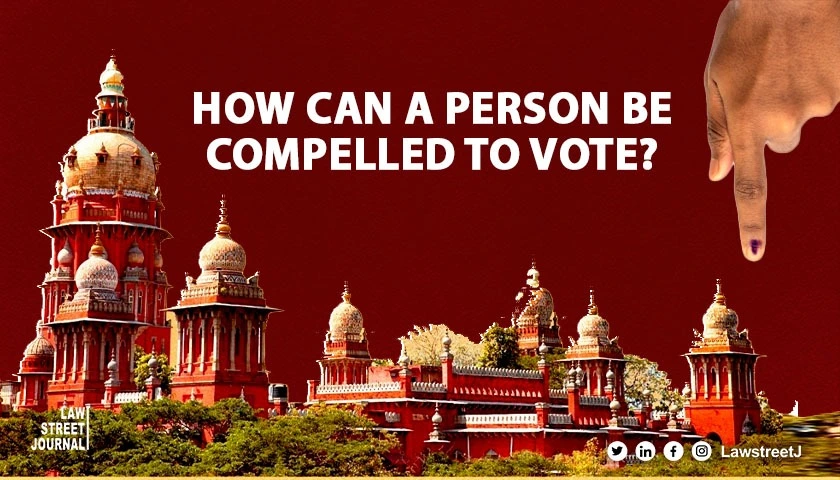
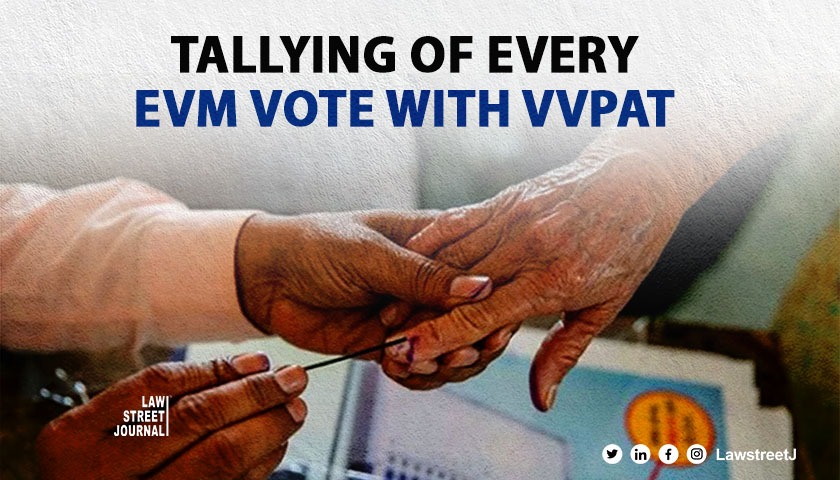
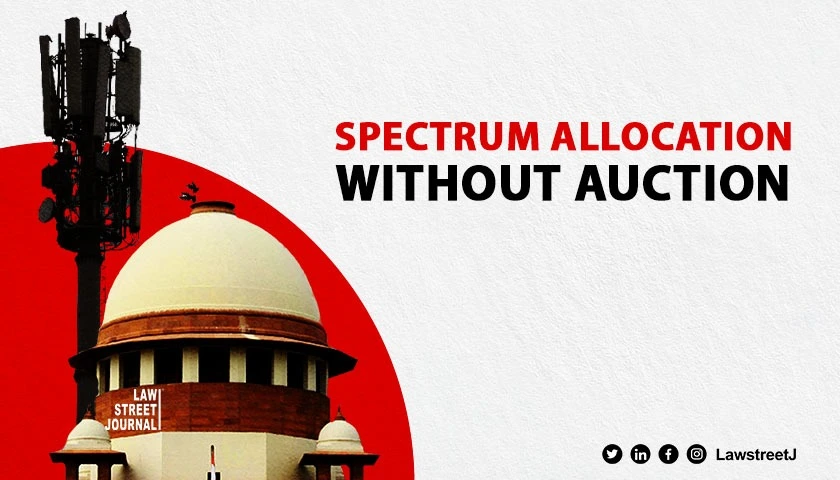
.webp)
